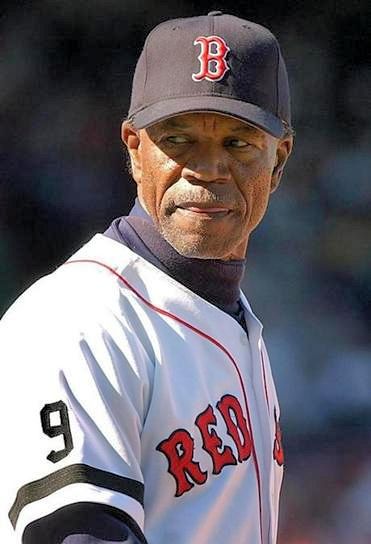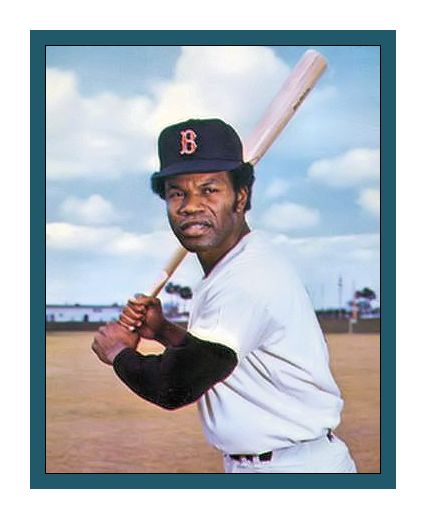|
“FENWAY'S BEST PLAYERS”  |
|||
As a central figure in the troubled racial history of the Red Sox, Tommy Harper endured years of discrimination as a player, coach, and front-office staffer under the team’s Yawkey-affiliated regime. He once fought back and received a measure of vindication with an out-of-court settlement. But he later carried scars from the experience into the autumn of his life. He said he heard racial slurs uttered not only by the team’s fans but its uniformed personnel. At times, he said, his Boston baseball life was an exercise in indignity. In late 1971, Tommy was 10 years into his major league career when the Sox acquired him from the Brewers in a deal that sent two of the "Impossible Dream" stars, Jim Lonborg and George Scott, along with Billy Conigliaro, Ken Brett, Joe Lahoud, and Don Pavletich to Milwaukee. He brought speed, a rare quality, to the Sox roster. When Tommy came to the Sox he was reunited with his closest friend, Luis Tiant. Luis would grab the newspaper and go into the bathroom for twenty minutes, flush the toilet and come out saying, "There goes Tommy Harper". Harper would retaliate by throwing a bucket of ice over the divider on top of Tiant. In 1972, Tommy stole 25 bases. He might have attempted more steals, but Luis Aparicio batted second in the order and the pair worked on the hit-and-run more than just the straight steal. Harper ranked among the league leaders in several categories during his first two years with the Sox. He was the club’s MVP in ’73, when he led the AL with 54 stolen bases and broke Tris Speaker’s Sox record of 52. His mark stood until Jacoby Ellsbury stole 70 bases in 2009. As Tommy approached Speaker's record, the Red Sox told him that they would present him with the base when he stole #53. Tommy joked that in that case, he's gonna do it stealing home. Harper slumped during the first half of the 1973 season, but starting in the middle of July, he got hot and batted .324 In 1974, Tommy slumped and was shipped to the California Angels, with his best playing days behind him. Harper coached with the Expos until 1999, when Dan Duquette, then the Sox GM, hired him as the Red Sox first base coach. But Harper was particularly offended by the Sox hiring a former player, Mike Stanley, in 2002 at a coaching salary more than $50,000 greater than his, even though he had 15 years of major league coaching experience and Stanley none. Tommy remained the first base coach until the fall of 2002, when he was reassigned as a player development consultant. The new Sox owner, John Henry, along with Larry Lucchino, wasted no time acknowledging the club’s “undeniable legacy of racial intolerance’’. Changes were made, the team’s racial diversity improved, and in 2010 the Sox inducted Tommy Harper into the Red Sox Hall of Fame.
|
|||

